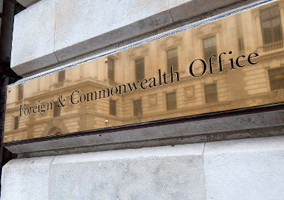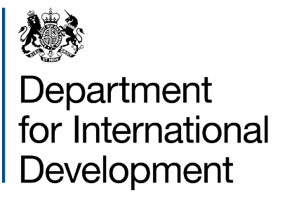International development charities expect to make more redundancies in the months ahead, according to a survey of aid organisations.
One in three charities said they expected to make redundancies over the course of 2021-22, as a result of the coronavirus crisis and changes to public funding.
Bond, the umbrella body for aid groups, which conducted the survey, said that charities had been “abandoned” by the government.
The survey of 100 Bond members was carried out last month.
More job losses likely
The survey showed that around one in four charities has already been forced to make staff redundant as a result of Covid-19.
More than a third said they anticipated making redundancies in the coming year, and one in 10 aid charities said they had already lost 20% or more of their staff.
This comes after job losses in 2020 at a number of high-profile development charities, including Oxfam GB, Plan International UK, and Comic Relief.
Frustration at government
Survey respondents also said they were unhappy with the financial support the government had offered during the pandemic.
Asked to score the quality of the support available to the charity sector as a whole, the government scored an average of 3.6 out of 10. The Foreign, Commonwealth and Development Office, which deals directly with aid charities, scored just 2.6.
The government distributed £20m in emergency funding to projects run by development charities last May, although that was limited to all but a handful of very large charities. Other funding reforms, intended to help charities through the crisis, were under-subscribed and criticised as “bureaucratic sludge”.
Small charities responding to the survey were the most likely to say they expected their income to fall over the next twelve months.
58% of small aid charities said they anticipated a lower income in the coming year, compared to 54% of medium-sized charities and 40% of large charities.
Bond said this was likely to be a result of public funding switching from grants to contracts. Charities are also likely to be hit after the government reduced its overall spending commitment on overseas aid.
At the same time, almost two-thirds of charities said they expected demand for the services to grow.
Bond: Situation is getting 'progressively worse'
Stephanie Draper, the chief executive of Bond, said: “The situation has got progressively worse for small and medium NGOs on the frontline dealing with Covid-19.
“Providing the basics to marginalised communities – healthcare, water, food, education – is now even harder as funding dries up and staff are made redundant.
“Sadly the third sector, which is a final lifeline to so many people both at home and around the world, has been abandoned by the government, leaving many of us questioning what ‘Global Britain’ means.
“We urge the government to protect any funding that directly helps people, particularly grants, and allow organisations to redirect funding to frontline programming rather than asking for it back, so NGOs can continue to deliver lifesaving support during the global pandemic.”
Editor's note: This article was updated to add details of the government's funding package for aid charities
Related articles












